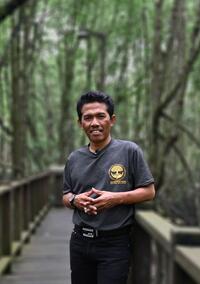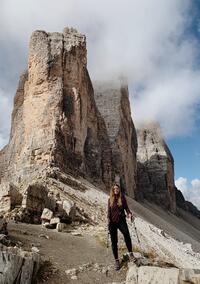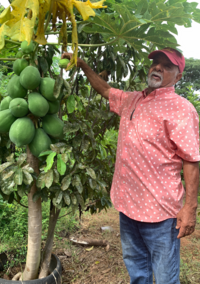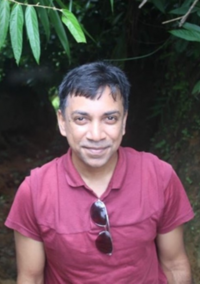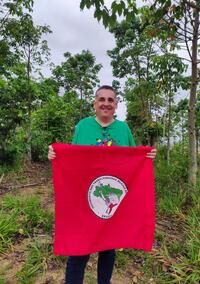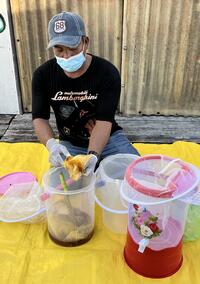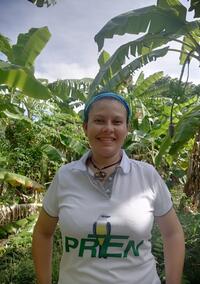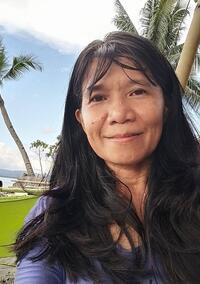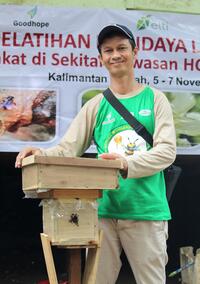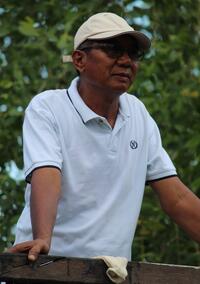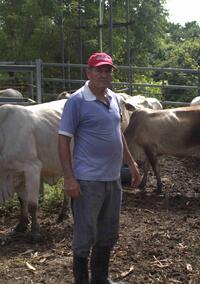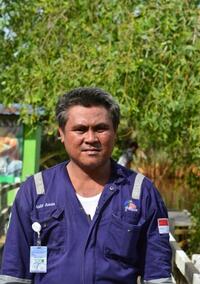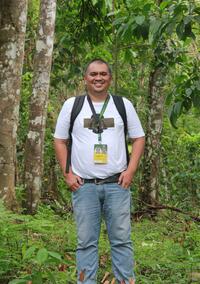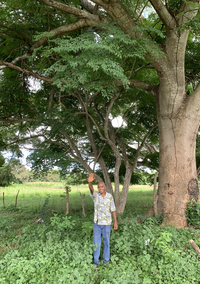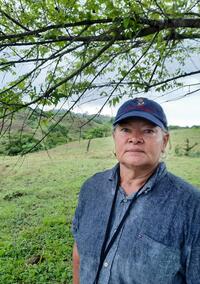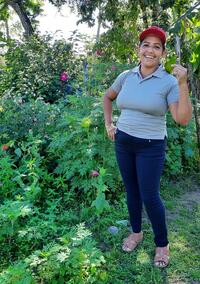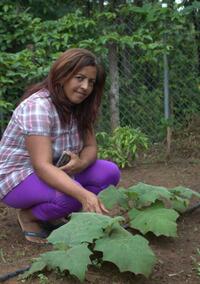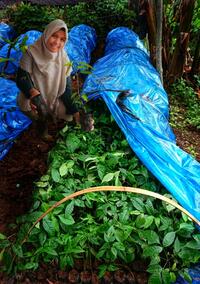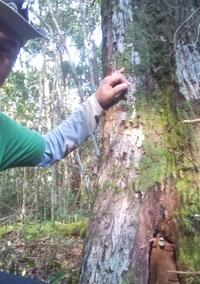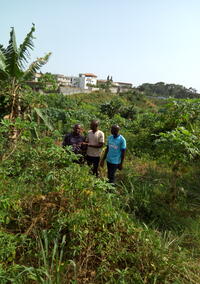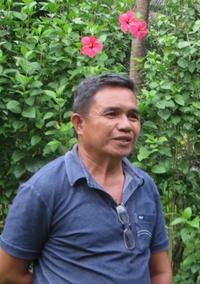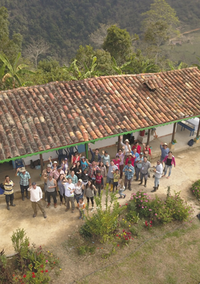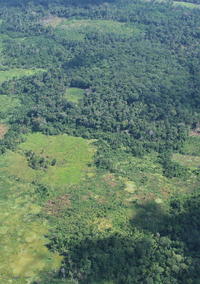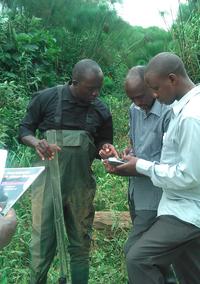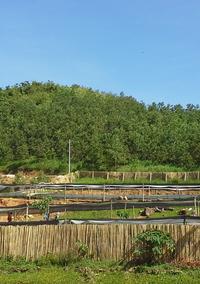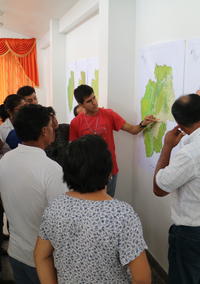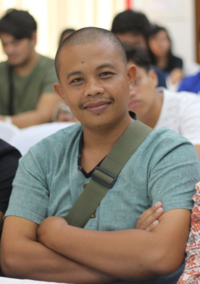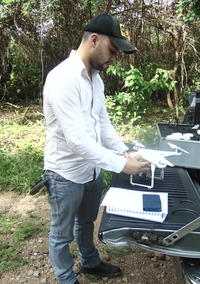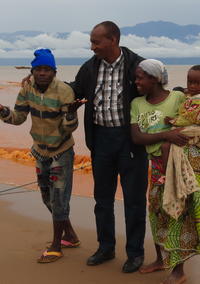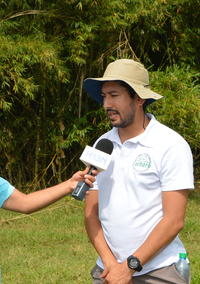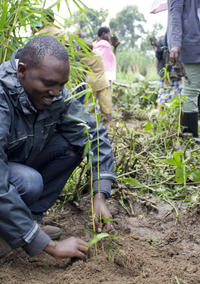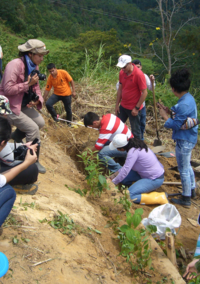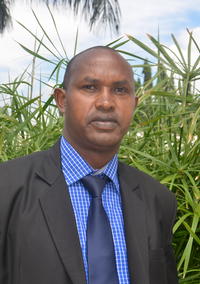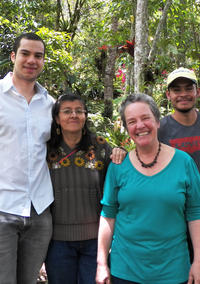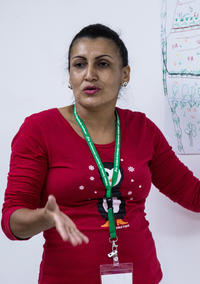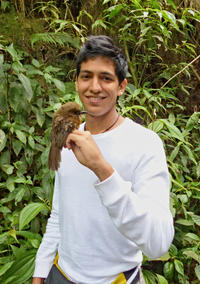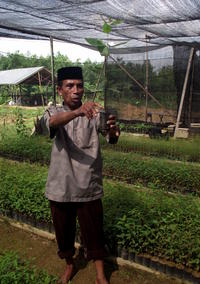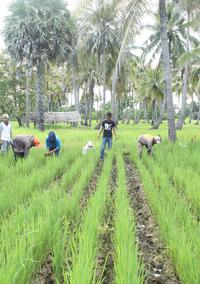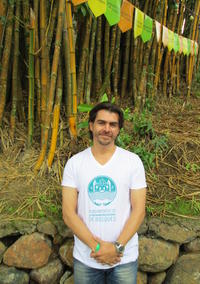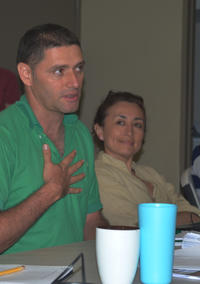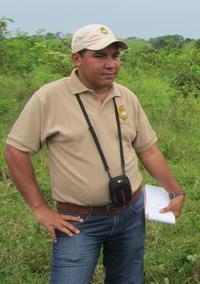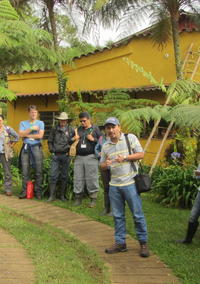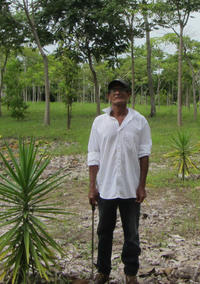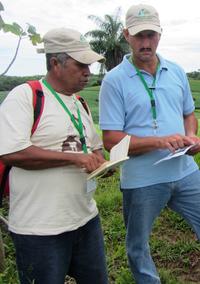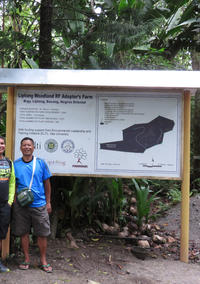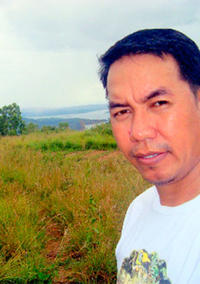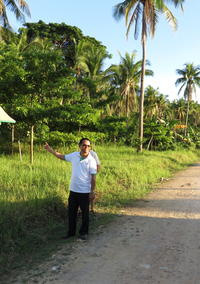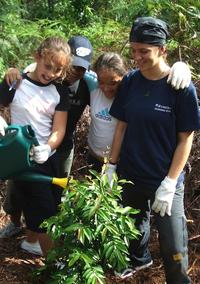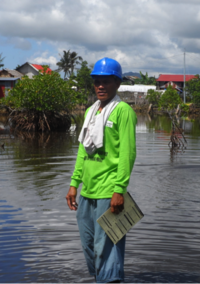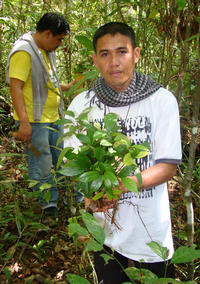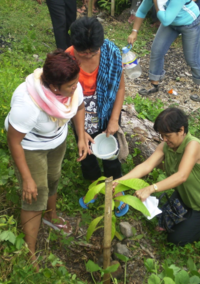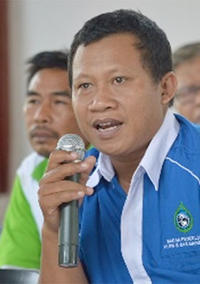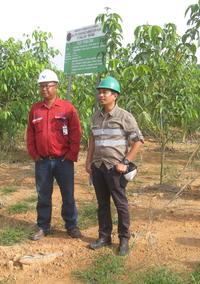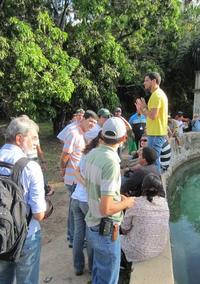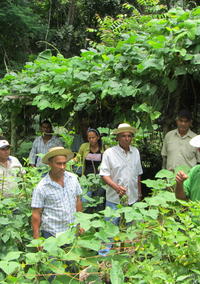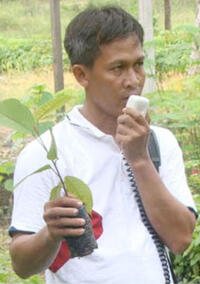You are here
Increasing the Resilience of Cattle Farms in Panama’s Santa María River Watershed
These practices result in low farm productivity and landscape-scale environmental degradation, especially in the heavily deforested Santa María River Watershed—an important watershed that provides drinking and irrigation water to the Veraguas, Herrera, and Coclé provinces. Farmers in this region face annual water shortages and disrupted farm productivity— compounded with unpredictable weather, conventional cattle farms become particularly vulnerable. Under these dire conditions, some farmers from the region decided to make substantial changes to continue their traditional ranching livelihood.
ELTI alumnus and rancher, Arnulfo “Fufo” Lasso, transformed his family’s cattle farm when he participated in the project “Sustainable Cattle Ranching in the Middle and Lower Watersheds of the Santa María River as a Measure of Adaptation to Climate Change.” This project is funded by the Adaptation Fund and is the largest sustainable cattle ranching project ever implemented in Panama. It involved 120 producers who, as a result of their involvement, collectively established 600 hectares of silvopastoral systems. As a project participant, Arnulfo attended a field course at ELTI’s training landscape in Panama’s Los Santos Province. During the course, he visited research sites and model farms and learned about ecological livestock production from ELTI alumni who are members of the Association of Livestock and Agrosilvopastoral Producers of Pedasi (APASPE). ELTI’s Panama team members supported Arnulfo to develop a farm management plan as a first step of the project, which involved applying the strategies he learned during the course and integrating the improvements he envisioned for his farm.
Over the past two years, Arnulfo received assistance to make significant changes to his farm, such as establishing small pastures, increasing living fences, planting native timber species, improving the cattle aqueduct, and establishing a forage bank. As a result, the productivity of his dairy cows has doubled, and he is spending a fraction of the costs he did in the past. It has been so successful that Arnulfo plans to stay on the farm rather than return to his job in the provincial capital. In his words, “Here at the farm, it is much more peaceful than in the city, I breathe clean air, listen to the birds, and best of all, I am my own boss!”
On this farm, we would always run out of pasture grass for the cattle. I’d have to drive to the next town 8–10 times a year to buy hay bales and sacks of feed, costing me $50 each trip. Before this project, I used to just think in the moment, instead of planning for the dry season when water and pasture grass become scarce. But that all changed with the project. Through the farm plan, I learned to recognize the weaknesses of my farm and make improvements so that I’m not caught off guard by the dry season. For example, I rotate my cattle on small paddocks, I planted more shade trees, and I have a forage bank with three different types of forages—now I produce all my water and food for the cattle here on my farm!
Arnulfo Lasso
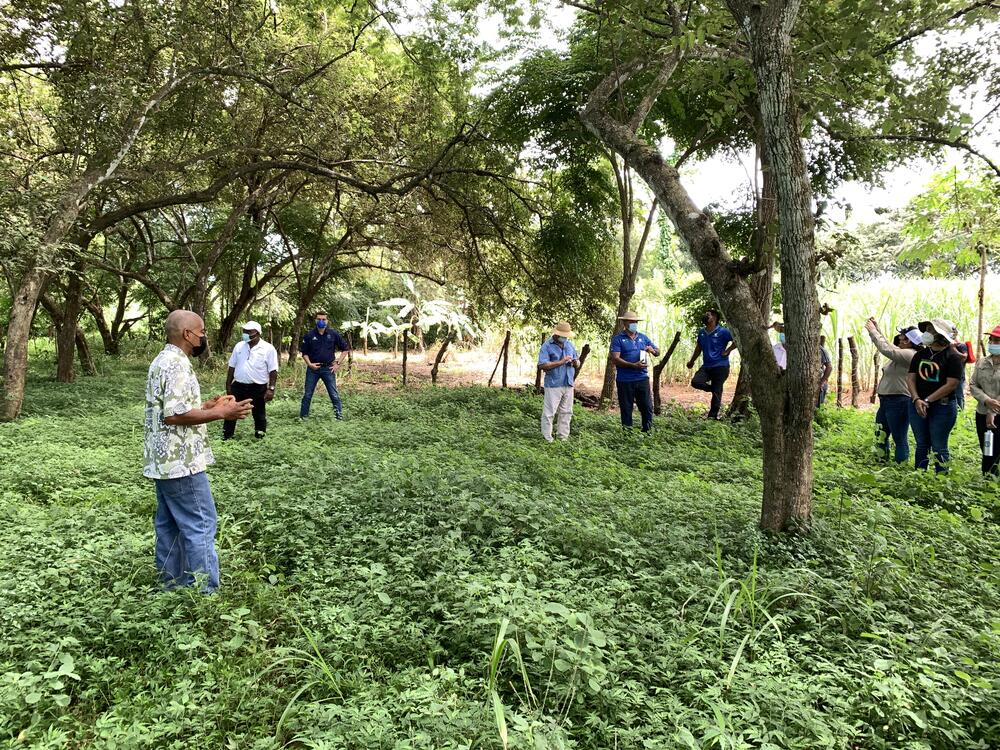
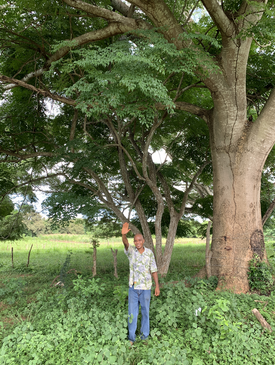
Acknowledgements
Special thanks to the Adaptation Fund, Fundación Natura, and the project’s implementing consortium led by Group for Education and Sustainable Environmental Management (GEMAS).






